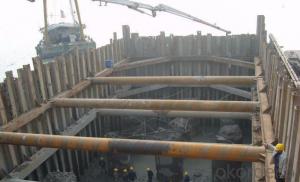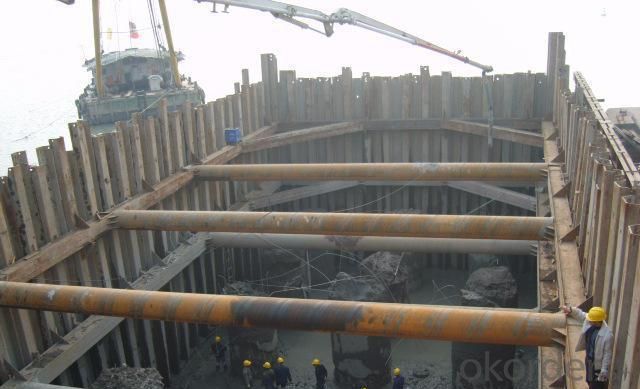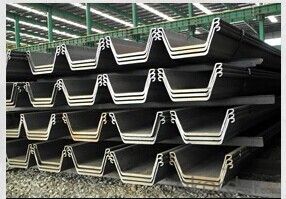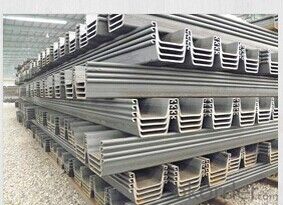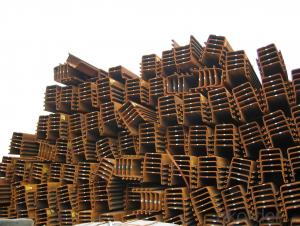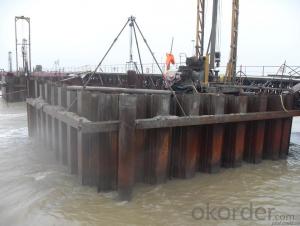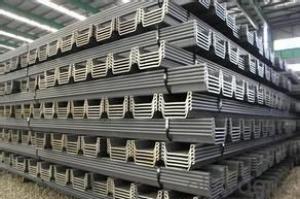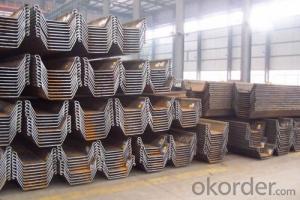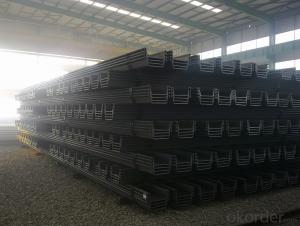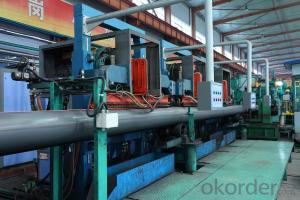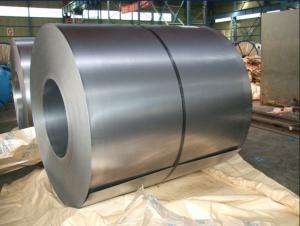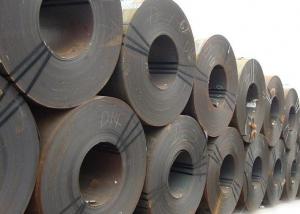Steel Tubular Pile
- Loading Port:
- China Main Port
- Payment Terms:
- TT OR LC
- Min Order Qty:
- -
- Supply Capability:
- -
OKorder Service Pledge
Quality Product, Order Online Tracking, Timely Delivery
OKorder Financial Service
Credit Rating, Credit Services, Credit Purchasing
You Might Also Like

- Q: What are the different types of steel coatings and their applications?
- There are several types of steel coatings that are used for different applications. Some common types include zinc coatings, epoxy coatings, and powder coatings. Zinc coatings, such as galvanization, provide corrosion resistance and are commonly used in outdoor applications like fences, bridges, and metal roofs. Epoxy coatings provide protection against chemicals and are often used in industrial settings, such as on pipes or tanks. Powder coatings create a durable and attractive finish and are commonly used on appliances, furniture, and automotive parts.
- Q: How does steel sheet metal fabrication work?
- Steel sheet metal fabrication is a process that involves cutting, bending, and shaping steel sheets to create various products. It begins with the design phase, where engineers create a blueprint or CAD model of the desired product. Next, the steel sheets are cut using different techniques such as laser cutting or shearing. The cut sheets are then bent into shape using press brakes or other methods, and additional processes like welding or stamping may be used to join or add details to the metal. Finally, the fabricated steel sheet is finished by sanding, painting, or coating to enhance its appearance and protect it from corrosion.
- Q: What are the different methods of joining steel components together?
- There are several methods of joining steel components together. These include welding, which involves melting the edges of the components and fusing them together; bolting, where the components are held together using screws or bolts; riveting, which involves joining the components using metal pins called rivets; and adhesive bonding, where a strong adhesive is used to bond the components together.
- Q: How are steel products used in the oil and gas industry?
- Steel products are widely used in the oil and gas industry for various applications such as pipelines, drilling equipment, storage tanks, and offshore platforms. Steel's strength, durability, and resistance to corrosion make it an ideal material for these critical components, ensuring reliable and safe operations in the industry.
- Q: What are the environmental impacts of producing steel products?
- The environmental impacts of producing steel products include emissions of greenhouse gases, such as carbon dioxide, during the iron and steel production process. Steel production also generates air pollutants, including sulfur dioxide, nitrogen oxide, and particulate matter. Additionally, the extraction of raw materials for steel production can lead to habitat destruction and deforestation. The steel industry also consumes large amounts of water and energy, contributing to resource depletion and potential water and air pollution. Overall, the production of steel products has significant environmental consequences that require sustainable practices and mitigation measures.
- Q: How are steel profiles used in the construction of underground tunnels?
- Steel profiles are commonly used in the construction of underground tunnels as they provide structural support and reinforcement. These profiles are used to create the tunnel lining, which helps to prevent the collapse of the surrounding soil or rock. Additionally, steel profiles can also be used as tunnel ribs or arches, distributing the load and ensuring stability. Overall, steel profiles play a crucial role in enhancing the strength and longevity of underground tunnels.
- Q: What are the different types of steel forgings and their uses?
- There are several types of steel forgings, including carbon steel forgings, alloy steel forgings, and stainless steel forgings. Carbon steel forgings are commonly used in applications where strength and durability are important, such as in automotive and construction industries. Alloy steel forgings offer enhanced properties like increased strength, heat resistance, and corrosion resistance, making them suitable for aerospace and defense applications. Stainless steel forgings are highly resistant to corrosion and are used in various industries, including food processing, medical equipment, and marine applications.
- Q: What are the applications of steel forgings in the automotive industry?
- Steel forgings have a wide range of applications in the automotive industry. They are commonly used in critical components such as engine parts, transmission gears, steering systems, suspension components, and axles. Steel forgings offer exceptional strength, durability, and resistance to wear and tear, making them ideal for withstanding the demanding conditions of automotive operations. Additionally, their precise shaping and dimensional accuracy contribute to improved performance, safety, and fuel efficiency in vehicles.
- Q: What are the different types of steel wire ropes and their uses in offshore drilling operations?
- There are several types of steel wire ropes commonly used in offshore drilling operations. These include drilling lines, sandline cables, and guy wires. Drilling lines are heavy-duty wire ropes designed to support the weight of the drill string and transport drilling fluids. They are used to lower and raise the drill bit, as well as to rotate the drill string during drilling operations. Sandline cables, on the other hand, are lighter wire ropes used for well servicing and workover operations. They are primarily used to lower and retrieve equipment, such as pumps and tools, into and out of the wellbore. Lastly, guy wires are steel wire ropes used to support and stabilize offshore drilling platforms or structures. They help to counterbalance the weight and forces acting on the structure, ensuring stability and safety. Overall, steel wire ropes play a crucial role in offshore drilling operations, providing strength, durability, and reliability necessary for various tasks and applications.
- Q: What are the applications of alloy steel in the energy sector?
- Alloy steel is widely used in the energy sector due to its exceptional strength, durability, and resistance to corrosion. It finds applications in various components such as pipelines, power generation equipment, turbines, and drilling equipment. The high strength-to-weight ratio of alloy steel makes it ideal for constructing structures that can withstand high pressures and temperatures, ensuring reliable and efficient energy production and transmission. Additionally, alloy steel's resistance to corrosion makes it suitable for use in harsh environments, such as offshore oil and gas platforms, where exposure to seawater and other corrosive substances is common.
Send your message to us
Steel Tubular Pile
- Loading Port:
- China Main Port
- Payment Terms:
- TT OR LC
- Min Order Qty:
- -
- Supply Capability:
- -
OKorder Service Pledge
Quality Product, Order Online Tracking, Timely Delivery
OKorder Financial Service
Credit Rating, Credit Services, Credit Purchasing
Similar products
Hot products
Hot Searches
Related keywords
